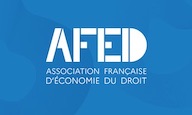The European legislation on public procurement has been modified over the past few
years to favor "green" public procurement. This raises the question of the goal of public
procurement regulation: while the best value for money is traditionnally considered as
the main concern of public procurement procedure, secondary goals have kept on growing
(support for SMEs, environmental policy, ...) over the years. We use data from TED
database to investigate whether environmental clauses in public procurement contracts are
associated with lower competition indicators. Exploring French public procurement contracts
between 2016 and 2020, our first results show that green contractual clauses are
associated with a higher number of candidates during the call for tenders, a lower competitive
pressure and a lower ability of SMEs to win. However, the weight allocated to
the green criterium is crucial in the analysis: when it is low, the number of competitors
increases and this has positive effect on prices. When this weight is high, there are a fewer
bidders, a lower price competitive pressure but a higher probability that a SME wins.
- Poster

 PDF version
PDF version

